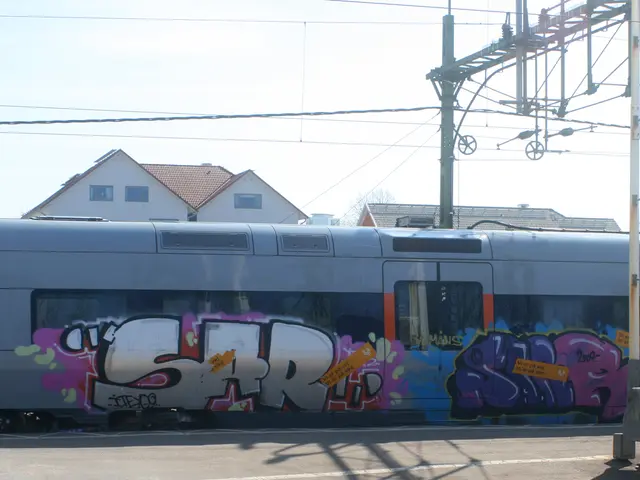Self-Driving Vehicle Updates: Uber, Wayve, California Department of Motor Vehicles (DMV), State Bills, and Mitsubishi Electric Make Headlines
In California, the focus on autonomous vehicles (AVs) is centered around safety and job preservation. The California Automotive Regulatory Standards (CARS) Package, a set of bills passed by the Assembly, aims to protect good trucking jobs and ensure the safety of California's streets.
Two key bills, AB 2286 and AB 3061, are part of this package. AB 2286 mandates that a trained human operator must be behind the wheel of self-driving trucks weighing more than 10,000 pounds, preserving union jobs in the trucking industry. AB 3061 requires AV companies in California to publicly report any vehicle collisions, traffic violations, disengagements, assaults, or harassment involving their vehicles to the DMV.
Meanwhile, the DMV has released draft regulatory language for the operation of heavy-duty autonomous vehicles. This update will help streamline the testing and deployment of light-duty AVs on California's public roads.
On the technological front, Uber has formed a strategic partnership with Wayve, a leader in Embodied AI for self-driving. Wayve is developing globally scalable Level 4 autonomous vehicles for future deployment on Uber. However, Uber's large-scale deployments and network integrations are currently handled through multiple partnerships across different regions and technologies, with no definitive plan reported to expand Wayve’s technology globally on Uber’s platform at this time.
Wayve's focus is on mapless end-to-end AI technology, allowing automated vehicles to operate without relying on detailed pre-built maps but rather with real-time sensor and AI interpretation. This partnership primarily focuses on autonomous ride-hailing in the UK, but there is no public indication that Wayve’s technology is planned for deployment on Uber’s global network at scale.
Mitsubishi Electric Automotive America (MEAA) has introduced the HubPilot autonomous distribution yard logistics platform as a service (PaaS). This platform utilizes infrastructure-based perception, high-definition mapping, and multi-sensor inputs to optimize logistics efficiency and safety in geofenced distribution centers. The HubPilot platform provides full coverage of the area, eliminating blind spots and even detecting pedestrians in the yard. It also automates the connection of compressed air hoses to trailers, eliminating the need for manual intervention. MEAA continues in the development phase of the HubPilot Platform in 2024 and will be fully operational in 2025.
Two autonomous vehicle safety bills strongly supported by the Teamsters Union have also been passed by the California Assembly. The California Department of Motor Vehicles (DMV) is seeking input from the public and stakeholders through October 14, 2024.
In summary, California is moving forward with autonomous vehicle regulations, ensuring safety and job preservation, while technology partners like Wayve and Mitsubishi Electric Automotive America are developing innovative solutions to enhance logistics efficiency and safety.
Read also:
- Fructose Market Forecasted to Exceed $8.1 Billion by 2034
- Testing the Camp Mode of the 2025 Tesla Model Y with Juniper's interior housing two kids, shockingly low CO2 levels were discovered.
- In an innovative move, Ozzy Tyres transformed the automotive sector through an e-marketplace, introducing a sleek revamp.
- Chevrolet's 1,000-Mile Silverado Electric Truck Sets a New Standard in the Automotive Industry








